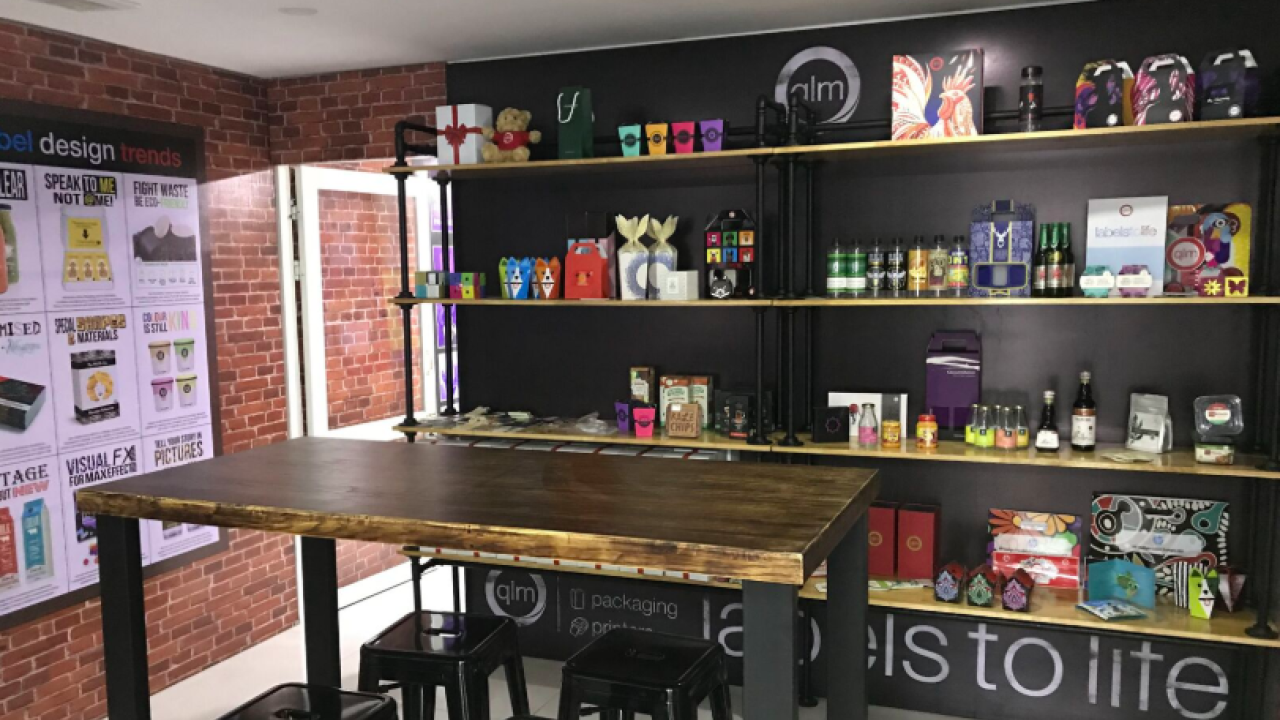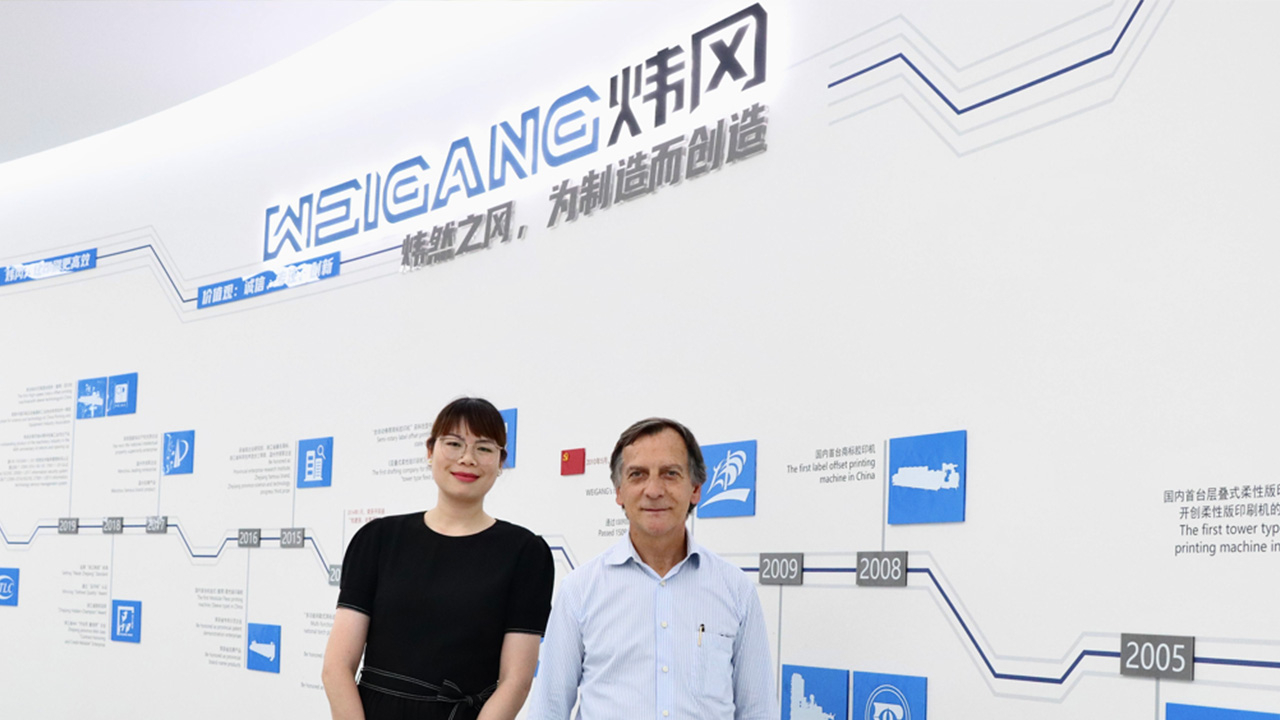QLM sets sights on Southeast Asia

QLM Label Makers was founded in 1973 by David and Del Pugh, and has since grown to become one of the Asia-Pacific region’s leading label manufacturers. With operations in Australia, Malaysia, Vietnam, Cambodia, as well as Bangladesh and the UK, its services range from account management and sales, to graphic design and manufacturing, through to customer service and ongoing support.
Its most recent development is the opening of the plant in Cambodia that combines digital and conventional label printing equipment, including the country’s first HP Indigo digital press, a ws4500.
Simon Pugh, QLM Group CEO, states that this investment in Southeast Asia is designed to give it a greater footprint in emerging markets. ‘We have looked to Cambodia as a market with exciting growth potential and will be providing quality materials and converting equipment, something the market has been wanting for some time.’
He continues: ‘The time and effort it takes to set-up a business in these countries is outstanding. You have to be able to work through a minefield of legislation and red tape, although the payoff comes when you’re in the line at a supermarket and see someone with your products in their basket.’
Barriers to entry
QLM’s journey to the business it is today has seen it adopt digital, through HP Indigo, across its operations. This has allowed it to benefit from the evolution of the technology, as well as changing market dynamics (see boxout). Pugh notes, however, that there are issues in adopting digital in regions such as Southeast Asia, namely price. ‘You are competing against letterpress, which is a dominant technology in the region. The market is driven by price, so if you are comparing how cheaply you can produce 100,000 pieces on a digital press or using letterpress, the conventional process will always be cheaper.’
The sheer size and scale of Southeast Asia is another challenge. Pugh opines that HP Indigo probably has the highest market penetration in Australia, where close to 100 of its presses are installed to serve a population of 25 million people.
‘Australia has a very low and fragmented population, as well as a high cost of labor. This makes the volume of manufacturing and number of SKUs a lot smaller.
‘Across Asia, the cost of labor is very low and there are high population densities. Vietnam, for instance, has a population in excess of 95 million people. And there is a higher volume of SKUs produced.
‘This means it is a question of math and the breakeven point when considering digital versus conventional production. It can be done, but if you just install a digital engine and try to compete, it will not work.’
QLM Label Makers marketing manager Lindsay Nutley speaks of keen interest in digital technology in Vietnam. In August, QLM Vietnam hosted the Digi Wow seminar in partnership with industry suppliers HP Indigo, Rieckermann and Esko. This attracted 120 attendees for presentations on the potential of digital. ‘Few in Vietnam are using digital printing, so it’s exciting to be able to educate brand owners and key industry figures on what the technology can do. It is an untapped area of the market,’ says Nutley.
IP
QLM offers letterpress, flexo and other conventional processes alongside HP Indigo digital printing technology, which is identified as just another, albeit important, part of its offering. QLM has developed its own IP in relation to digital printing, which it uses when engaging in conversation with customers in established and new markets.
Pugh adds: ‘We position our solution as market-leading technology, which is an attractive proposition to some who want to associate themselves with the best, cutting-edge technology. Digital is also a cleaner, simpler production method, which carries a lot of value.
‘We are adopting the IP developed in Australia and targeting customers in Southeast Asia with it. We endeavor to understand the pinch points being experienced in each market.’
As an example, QLM’s strategic move into Cambodia has been based on external evaluations of the market, as well as its own evidence.
‘How many stickers are being produced in Cambodia,’ asks Pugh, rhetorically. ‘We have been operating across Asia for some time so are able to read markets and signals. In Cambodia, we have seen what is available and what is possible.
‘We also own the ws4500 and Phnom Penh [Cambodia] is located close to Ho Chi Minh City [Vietnam], so the risks are much lower.’
QLM has looked further afield too, to India for example, although Pugh makes clear that entry into any market, regardless of size and potential, must be the right fit for the company.
‘Every business needs to work out its ability for stretch and to work locally. We have honed our proposition to ensure it is not just about making lots of products and making them super cheap.’
Pugh adds that this is one reason joint ventures are not an avenue QLM will look to exploit to enter new markets.
‘If you have two people running it, you end up with no firm direction. Or your partner on the ground will be expecting to run it, and they might not do so to your requirements. Businesses are built on cultures, ethics, values and processes. It is very hard to find someone aligned in that thinking.’
He continues: ‘We aren’t looking to be a big multinational supplier, of which there are many, but have worked out what works for QLM, the market and our customers. We deal with Fortune 500 type companies but no company is worth more than five percent of our turnover. Our customer profile sees no customer as more or less important than any other. The person spending AU$100 on an order is spending the most important AU$100 they will on labels today.
‘We’re making sure each job is treated with the gravitas it deserves and ensuring the channels are in place to make that job move through the company as efficiently and cost-effectively as the one for 25 million labels.’
Stay up to date
Subscribe to the free Label News newsletter and receive the latest content every week. We'll never share your email address.


